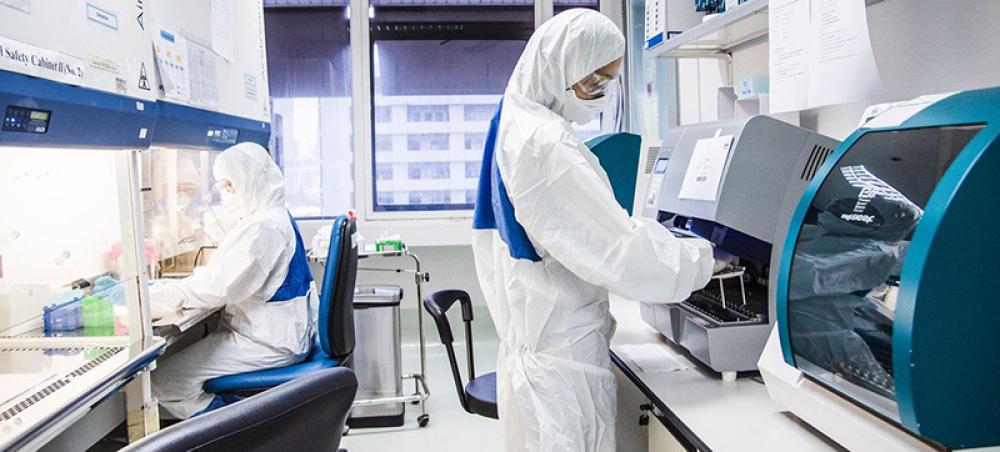Just Earth News | @justearthnews | 30 Aug 2023, 05:49 am Print

Photo Courtesy: WHO/P. Phutpheng
The World Health Organization (WHO) on Tuesday announced an expanded partnership to improve access to COVID-19 technology, knowledge and clinical data, stressing the fight against the virus must continue.
The partnership, called the COVID-19 Technology Access Pool (C-TAP), was launched in 2020, to facilitate timely, equitable and affordable access to COVID-19 health products through public health oriented, transparent and non-exclusive licensing agreements.
“COVID-19 is here to stay, and the world will continue to need tools to prevent it, test for it and treat it,” said Tedros Adhanom Ghebreyesus, WHO Director-General.
“Through C-TAP, WHO and our partners are committed to making those tools accessible to everyone, everywhere. I am grateful to the leadership shown by those license holders who have contributed technology.
As of 16 August, there have been 769,806,130 confirmed cases of COVID-19 globally, including 6,955,497 deaths, while almost 13.5 billion vaccine doses have been administered.
Important boost
The three institutions joining C-TAP include private vaccine manufacturer Medigen Vaccine Biologics Corp, the Spanish National Research Council and the University of Chile.
Medigen Vaccine Biologics Corp is offering its patent for a COVID-19 vaccine that has seen more than three million doses administered across seven countries.
Similarly, the Spanish National Research Council is sharing a license for a COVID-19 vaccine prototype, and the University of Chile, technology for quantification of neutralizing antibodies.
The addition of the three new licenses provides an important boost to the overall effort in the fight against COVID-19, WHO said. The new licenses are global, transparent and non-exclusive to all manufacturers.
- New hybrid Mpox strain surfaces in UK and India — WHO sounds global alert
- Deadly weight: Obesity now responsible for 1 in 10 infection deaths worldwide
- Coffee and tea: This everyday drink may help protect your brain from dementia
- Happy Chocolate Day! The sweet secret behind chocolate’s hidden benefits
- Cambridge study finds menopause affects memory, mood, and sleep





-1763561110.jpg)
